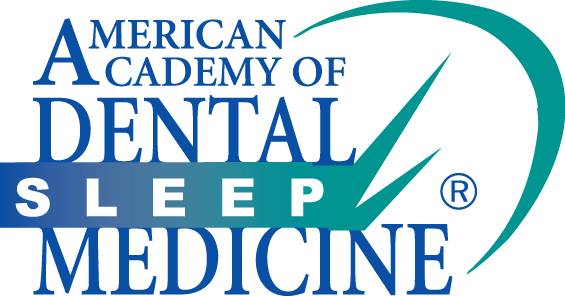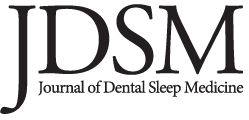
Editorial 1, Issue 10.4
On the Topic of Education
http://dx.doi.org/10.15331/jdsm.7308
Jean-François Masse, DMD, MSc, FACD, Diplomate, ABDSM
Editor-in-Chief Journal of Dental Sleep Medicine
Universite Laval, Quebec City, Quebec, Canada
A group of distinguished sleep researchers recently published a paper in The Lancet1 advocating a better recognition of sleep as a major factor for health. The paper reminds us of the impact of sleep on all aspects of life. This paper definitely meant to appeal to a broader audience than the people of the sleep community as the text is interesting and easy to read. The fact that the article has been written in the first place and accepted by a publication as renowned as The Lancet is very telling that the many key stakeholders of the health community are starting to become more aware of the importance of sleep to general health.
As dentists, we sometimes think that dental sleep medicine (DSM) is overlooked when sleep problems are diagnosed. The Lancet reminds us that the integration of sleep as a fundamental component of health remains an everyday fight, even in 2023.1 Thus, while DSM is certainly less overlooked than it used to be, there is still plenty of work to be done as we are part of the sleep community.
As the estimated ratio of the population to sleep physician is now about 43,000:1,2 the challenge of getting the word out about sleep health is only going to become more difficult. Some members of the medical community seem to be relying on advances in technology to diminish the burden of undiagnosed sleep problems such as allowing validated, simpler, remote investigations. We can only hope that things will work out for the best as we have no control over this situation and the number of OSA cases estimated has grown exponentially in the last years. Relying on medical general practitioners and dentists to diagnose simple cases seems to be another avenue to attempt to gain control over the situation - but this is not the topic of this editorial.3
Although the number of qualified dentists has more than tripled in the last five years, there is still a shortage of trained dentists providing oral appliances. We need more sleep dentists. We are all in the business of dentistry, and while it may sound counterproductive at first to demand an increase in competition, the number of certified sleep dentists can be so low in certain areas that the services we offer can go under the radar. This is not serving us at all.
Let me explain: the demand for sleep apnea and snoring appliances is expected to increase.4 There is an ongoing redefinition of our scope of practice which should naturally broaden our horizons and thus, increase the demand for our services. The AADSM, by supporting the education of dentists interested in sleep, represents us at national levels with policy makers and insurance companies. AADSM leaders have created standards through the American Board of Dental Sleep Medicine. This is the only way to go if we want the field of DSM to be recognized as more than just a craft. The AADSM supports the development of dentists who are already interested in dental sleep medicine. But, there is a need for better exposure to DSM upstream, at the student level. This all brings me to the teaching of DSM in dental faculties.
I know my colleagues who teach sleep at universities are doing a phenomenal job. They create content, educate and evaluate students with minimal support. To teach DSM in universities, you have to be a firm believer that what we do makes a difference in people's lives. The temptation to go to private practice is always present. Teaching is often very rewarding, but the challenges are often weighing at the end of the day. If we get more support from universities, everybody wins: we get a few more sleep dentists and will increase awareness among dental students. Some also participate in medical rounds, thus improving acceptance of our field by medical colleagues. And finally, some get involved in research. Research is what gives credibility to dentists doing sleep at the end of the day.
Once again, the AADSM has been the catalyst for a group of professors to meet and share ideas. The Academic Council has worked to have representatives in over 40 dental schools, has hosted sessions at the Annual Meeting of the American Dental Education Association and has developed workshops for students. Often, dental schools only have one member of faculty who is focused on DSM, so the Academic Council also provides a forum and outlet, bringing all of these individuals from various institutions together to synergistically discuss ways to more effectively implement DSM at dental schools. While this is just the beginning, let's hope that the AADSM Academic Council will provide the critical mass to advocate for the development of DSM in multiple academic settings.
REFERENCES
- Lim DC, Najafi A, Afifi L et al. The need to promote sleep health in public health agendas across the globe. Lancet Public Health. 2023; (10):e820-e826.
- Watson NF, Rosen IM, Chervin RD. Board of Directors of the American Academy of Sleep Medicine. The past is prologue: the future of sleep medicine. J Clin Sleep Med. 2017;13(1):127–135.
- Collen JF, Wickwire EM, Capaldi V, Lettieri C. Losing sleep! Are we missing the future of sleep medicine? J Clin Sleep Med. 2020 Apr 15;16(4):473-474. doi: 10.5664/jcsm.8404.
- Sleep anpea oral appliances. Markets and Markets. Accessed October 6, 2023. https://www.marketsandmarkets.com/Market-Reports/sleep-apnea-oral-appliances-market-105423877.html
CITATION
Masse, JF. On the topic of education. J Dent Sleep Med. 2023;10(4)SUBMISSION AND CORRESPONDENCE INFORMATION
Submitted in final revised form October 4, 2023.Address correspondence to: Jean-François Masse, DDS, MSc, FACD, D.ABDSM, Professor, Universite Laval, 2780 Masson #200, Quebec City, QC, G1P 1J6, Canada; Tel: 418871-1447; Fax: 418-871-4983; Email: jean-francois.masse@fmd.ulaval.ca
